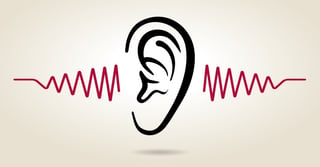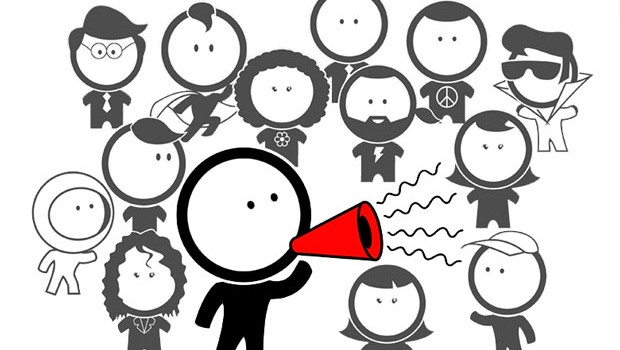Hi there readers, hope you all are doing well! Welcome to how to communicate effectively! This blog will talk about the importance of effective communication, and tips and tricks to communicate effectively!
(See what I did there?)
Being able to communicate effectively is one of the most essential life skills to learn. Many people believe that communication is just for passing on information, news, or ideas, but in life, it is much more than that. For example, let’s say your friend was absent from school yesterday and he/she asked you what he/she missed. You wouldn’t just tell him/her that he/she missed math, English, science, P.E, and history. That wouldn’t help him/her as he/she already knows the subjects that he/she is taking in school. You would have to explain the lesson each teacher taught, the homework that was assigned, and even show that you are willing to help that friend understand the concepts that you learned.
That is only one example out of many on how to communicate effectively. Several individuals believe that effective communication is only used in the workplace, but like in that example, it is used all throughout life. It is not just for CEOs and executives to come up with new ideas for business. It is not just for salespeople to want to sell something to a client. And lastly, it is not just for TED Speakers or influencers who inspire the world. Anybody can inspire anyone, regardless of who they are. So, why are people limited in their ability to communicate?
Importance of effective communication
Effective communication builds trust between individuals, prevents and resolves problems, provides clarity and direction, creates better relationships, increases productivity, and lastly, promotes team building. (climb.pcc.edu) As you can see, these benefits of effective communication apply to many of our problems in life. There are many times when one doesn’t trust another, leading to those two individuals distancing themselves from each other. However, if both individuals were to communicate effectively, they would become closer, not farther. Many people also get confused on given tasks and what they’re supposed to do. If the person who told them to do something had effective communication skills, the others would know exactly what to do. Again, these are just a few examples of how effective communication makes our life better!
Many people have the wrong idea of what effective communication is. We often come across people, personal and work-related, who we can immediately tell are not good communicators. Some people talk too much, and others talk too little. Some people repeat words too often, while others don’t say what they mean to. And, some people stop in the middle of a sentence, while others keep going on and on. If you realize that you are one of those people, don’t worry! This blog will explain the things that make people effective communicators, so that you can be one of them as well!
1. Be an active listener

Listening vs. speaking. These two words seem like polar opposites, but in reality, these two words go hand in hand. Effective communication is more about listening than speaking. “As well as being able to clearly convey a message, you need to also listen in a way that gains the full meaning of what’s being said and makes the other person feel heard and understood.” (helpguide.org)
There’s a big difference between engaged listening and simply hearing. When you really listen—when you’re engaged with what’s being said—you’ll hear the subtle intonations in someone’s voice that tell you how that person is feeling and the emotions they’re trying to communicate. When you’re an engaged listener, not only will you better understand the other person, you’ll also make that person feel heard and understood, which can help build a stronger, deeper connection between you.
By communicating in this way, you’ll also experience a process that lowers stress and supports physical and emotional well-being. If the person you’re talking to is calm, for example, listening in an engaged way will help to calm you, too. Similarly, if the person is agitated, you can help calm them by listening in an attentive way and making the person feel understood.
www.helpguide.org
2. Focus on non-verbal communication
Effective communication is not about what you are conveying from your words, but also from your expressions and your body language. A lot of people don’t know that body language actually says more than your words. “The most important thing in communication is hearing what isn’t said.” – Peter Drucker
“The way you look, listen, move, and react to another person tells them more about how you’re feeling than words alone ever can. Nonverbal communication, or body language, includes facial expressions, body movement and gestures, eye contact, posture, the tone of your voice, and even your muscle tension and breathing. Developing the ability to understand and use nonverbal communication can help you connect with others, express what you really mean, navigate challenging situations, and build better relationships at home and work.” (helpguide.org)
Are you showing that you’re interested or are showing that you’re distracted? Are you showing confidence or are you showing anxiousness? The other people can answer these questions for you based on your body language and expressions. If you want to show that you are interested and engaging with the other person, you should: uncross your arms, stand with an open stance, sit on the edge of your seat, and maintain eye contact.
3. Engage your audience

There’s no point saying something if the audience is not going to listen. In order to make them listen to you, you have to keep them going. Anybody, including me, would get bored after listening to someone reciting facts for just five minutes. Everyone has a limited attention span no matter how compelling or uninteresting a speaker is.
In order to engage an audience, you should be humorous and make jokes. Everyone loves a little laughter! Another way you can engage the audience is by letting them talk. Ask them their thoughts and opinions on something right after you talked about it. Ask them a hypothetical question about the topic of the discussion. By doing these, you can expect the audience to have all eyes on you!
4. Use visuals

If you are more of a visual learner, you understand the importance of using visual items, like slideshows, to help clarify and better understand something. Sometimes, when people speak, they aren’t very clear on what they are trying to tell you. However, if the person who was talking had a slideshow behind him which had bullet points and pictures of the topic, you would probably better understand what he/she is discussing.
Visual communication is one of the most effective ways of sending information. The main reason lies in the cognitive function of the human brain. Nowadays, images and graphics have flooded the advertising field because of the effectiveness of visual communication. The mind remembers images faster than words or texts.
eztalks.com
5. Think before speaking

In order to be an effective communicator, you must know what you are going to say. For example, if you’re asking for a raise, you’re not going to barge into the office and ask your boss if you can get a raise. You have to plan out what you are going to say so that when it is time to ask/say something significant, you are well prepared!
I recommend to my clients that for each important conversation they’re anticipating at work, they draft up a paragraph—in positive, present tense language—for how they want the conversation to flow. Notably, this is not a script, but rather a visioning exercise designed to tap into how each party to the conversation will feel during and after they meet. This exercise often helps to set the stage for a positive outcome.
businessinsider.com
6. Say the right words at the right time

While some of their jokes might not be appropriate for the workplace, standup comedians are certainly effective communicators. Comedians including Chris Rock and Dave Chappelle are able to host compelling 90-minute comedy shows, in part because they have mastered the art of timing.
Great comedians, like all great communicators, are able to feel out their audience to determine when to move on to a new topic or when to reiterate an idea.
entrepreneur.com
7. Be open-minded

Having an open mind is also very important if you want to communicate effectively. When communicating, it is important to not talk about just one perspective of something. There are often many sides to a topic, and just discussing one doesn’t do justice. Even if you are sure that what you are talking about is right, you can bring up the other perspectives to explain why. By doing this, you are keeping the conversation three-dimensional and intriguing.
“Open-mindedness – is important to look at different perspectives. Other people’s views might be different from your own. Judgment and insistence on your own points of view are a large barrier to open effective communication. You should always allow people the chance to convince you of their ideas or points of view.” (skillsportal.co.za)
8. Use “I” when giving feedback

For instance, if your intern is responding too casually to client emails, NVC would recommend that feedback be given as follows: “When I read emails from you to our client using text message lingo and emojis, I feel concerned, because I really value formality in our communications with important clients. Would you be willing to refine your communication style? And let me know how I can help.”
Communicating with “I” language allows the other person to be more receptive to feedback and to not become defensive. And note: this is incredibly more effective than using “you” language, such as “you’re way too informal in emails and you need to change that,” which would instantly make your intern feel defensive and attacked.
businessinsider.com
9. Show confidence and assertiveness

While confidence should be shown at all times, it is especially important if you want to be an effective communicator. While the majority of this blogs’ readers are teenagers, I’m sure you have experiences times when people wouldn’t listen to you because of your age. People may think, “Why do I have to listen to him/her? He/she is so young. What is he/she going to teach me?”
“Direct, assertive expression makes for clear communication and can help boost your self-esteem and decision-making skills. Being assertive means expressing your thoughts, feelings, and needs in an open and honest way, while standing up for yourself and respecting others. It does NOT mean being hostile, aggressive, or demanding. Effective communication is always about understanding the other person, not about winning an argument or forcing your opinions on others.” (helpguide.org)
10. Be polite, professional, and gracious at all times

No matter how intense your discussion is, no matter how uninteresting your discussion is, you should ALWAYS, always be polite, professional, and gracious.
According to this website about effective communication in the workplace, “If you can grow your workplace communication to include, as a part of your personal brand, a reputation for being cool under pressure, generous with praise and respectful to others, your workplace communication will become one of your greatest assets as you rise to the top of the corporate ladder.”
However, this does not just apply to a professional setting like an office. This applies everywhere, no matter how casual or professional a place is. People will realize that you put your ego aside and have a kind heart. This will lead to better trust, better relationships, and more happiness. As said by Richard Branson, “Please be polite. Nothing in life should ever erode the habit of saying thank you to them or praising them.”
The Takeaway
Many of us have been blessed with a voice, a beautiful voice that opens the door to new relationships, better understanding of others, and most importantly, the ability to express our feelings. Without our voice, how would we be able to tell others your feelings, your wants, and your opinions? How would we be able to understand others clearly if we don’t use our voice to communicate and talk to others?
Many people nowadays take granted of the gift of voice. We use it to hurt others, instead of care for them. We use it to blame others, instead of taking ownership. And, we use it to talk bad about others, instead of praise and commend them. But, what is the point of using our voice if it is doing more bad than it is good? We should be thankful just for being able to have the ability to say hi to others!
In order to communicate effectively, you should:
- Be an active listener
- Focus on non-verbal communication
- Engage your audience
- Use visuals
- Think before speaking
- Say the right words at the right time
- Be open-minded
- Use “I” when giving feedback
- Show confidence and assertiveness
- Be polite, professional, and grateful at all times
Relating back the effective communication, it takes time to master the art of communicating and will not be perfect right away. Keep practicing by talking to yourself in front of a mirror, talking to a family member, and visualizing you communicating effectively. For more information, be sure to watch this TED video on how to speak so that people will want to listen. Also, check out this book called “The Science of Effective Communication: Improve Your Social Skills and Small Talk, Develop Charisma and Learn How to Talk to Anyone.” Good luck!
